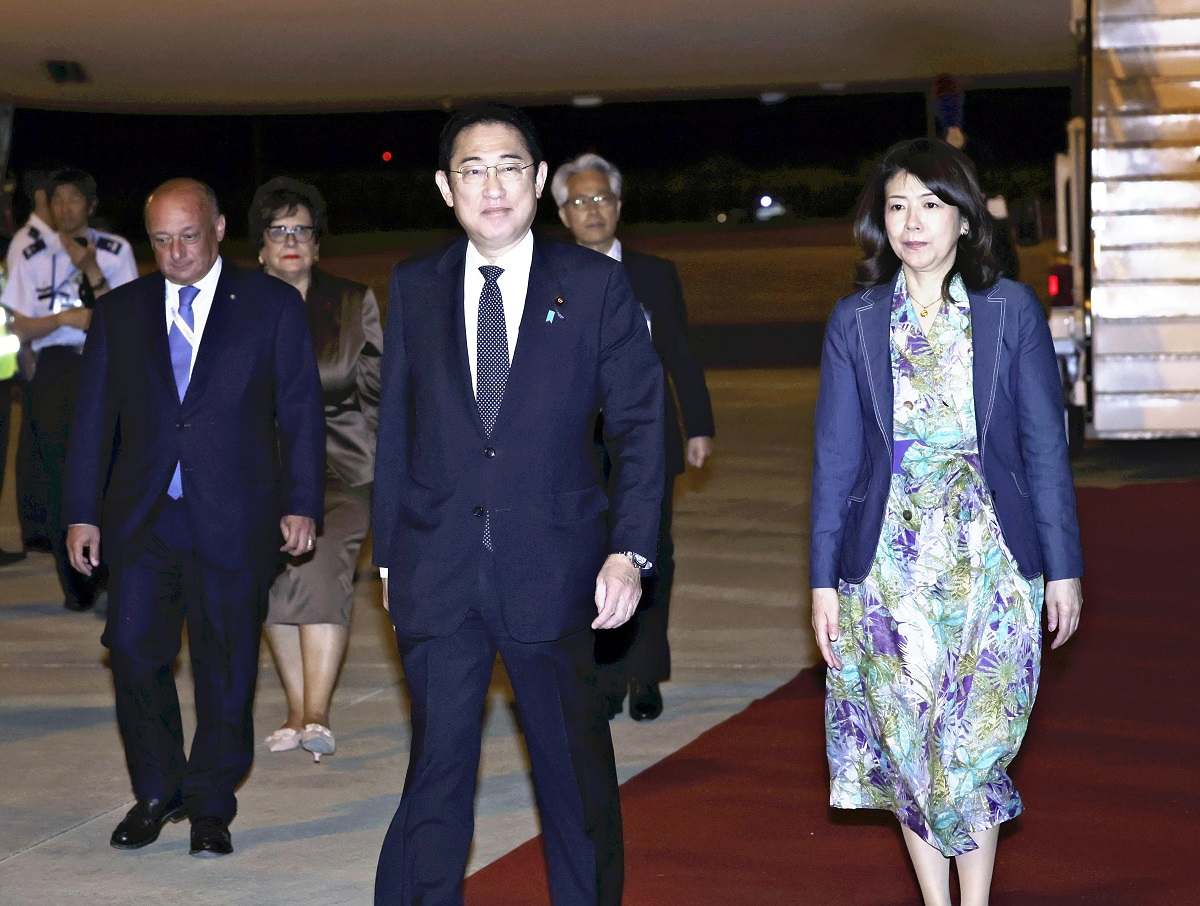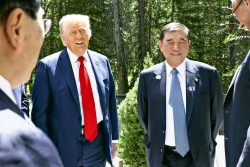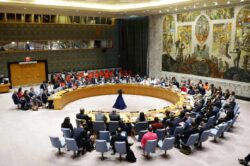G7 to Set Principles on Critical Material Supply Chains;Aim is to Avoid Overreliance on China in Key Areas

Prime Minister Fumio Kishida and his wife Yuko arrive in Italy on Wednesday to attend the G7 Summit.
20:00 JST, June 13, 2024
WASHINGTON — The leaders of the Group of Seven nations are set to agree on common principles to avoid overreliance on particular countries to strengthen supply chains for semiconductors and other critical materials, according to a draft of a leaders’ declaration on economic security to be adopted during their current summit meeting, which opened in Italy on Thursday.
Based on the principles, the G7 countries are expected to work together to develop specific criteria for selecting suppliers of critical materials.
Economic security is among the issues to be addressed at the G7 summit.
The draft was apparently made in consideration of the growing dependence on inexpensive Chinese and other products that dominate the semiconductor and electric vehicle markets. The G7 leaders are to agree that new common standards are necessary for public procurement of critical materials to prevent excessive focus on price.
The draft says the G7 recognizes “that economic resilience requires de-risking through diversification [of suppliers] and reduction of critical dependencies.” It then identifies principles to be considered for sustainable procurement of critical commodities, including security, diversification and transparency.
Based on these principles, the G7 states it will formulate strict standards. The draft lists as concrete examples adequate measures related to data and cyber security and labor rights.
Regarding cases of “economic coercion” being used to pressure other countries through trade restrictions, the draft states that the G7 “will work together with partners to ensure that attempts or threats to weaponize economic dependencies will fail and [G7 members] stand ready to take actions, where necessary, against economic coercion.”
“We will increase our collective assessment, preparedness, deterrence and response, developing new tools, as appropriate, in line with our respective legal systems and international law,” the draft says.
Behind the establishment of common standards is the issue of overproduction by China. The United States and other countries are concerned about the current situation in which old-generation semiconductors, EVs and solar panels are flooding the global market at low prices thanks to industrial subsidies by the Chinese government to its own companies.
The administration of U.S. President Joe Biden hopes to increase pressure on China through the G7.
Japan and European nations, for which China is an important trading partner, intend to avoid eliminating Chinese products. They instead aim to reduce relevant risks by lowering their dependence on China in terms of critical materials. They are not expected to make pointed reference to China in the area of economic security.
Top Articles in Politics
-

Japan PM Takaichi’s Cabinet Resigns en Masse
-

Sanae Takaichi Elected Prime Minister of Japan; Keeps All Cabinet Appointees from Previous Term
-

Japan’s Govt to Submit Road Map for Growth Strategy in March, PM Takaichi to Announce in Upcoming Policy Speech
-

LDP Wins Historic Landslide Victory
-

LDP Wins Landslide Victory, Secures Single-party Majority; Ruling Coalition with JIP Poised to Secure Over 300 seats (UPDATE 1)
JN ACCESS RANKING
-

Japan PM Takaichi’s Cabinet Resigns en Masse
-

Japan Institute to Use Domestic Commercial Optical Lattice Clock to Set Japan Standard Time
-

Israeli Ambassador to Japan Speaks about Japan’s Role in the Reconstruction of Gaza
-

Man Infected with Measles Reportedly Dined at Restaurant in Tokyo Station
-

Videos Plagiarized, Reposted with False Subtitles Claiming ‘Ryukyu Belongs to China’; Anti-China False Information Also Posted in Japan





















